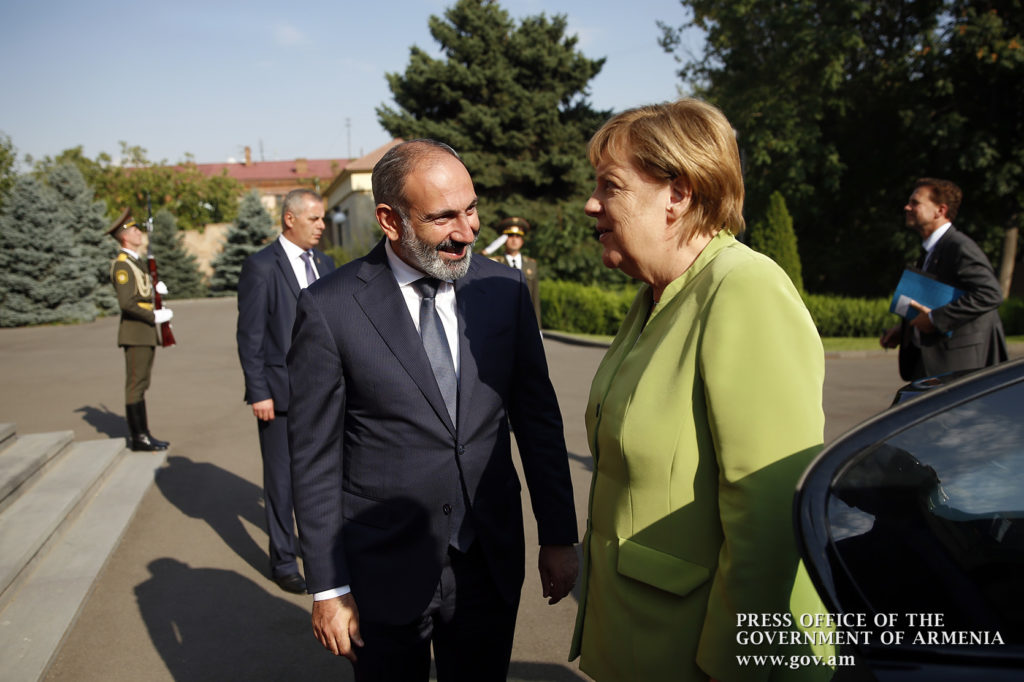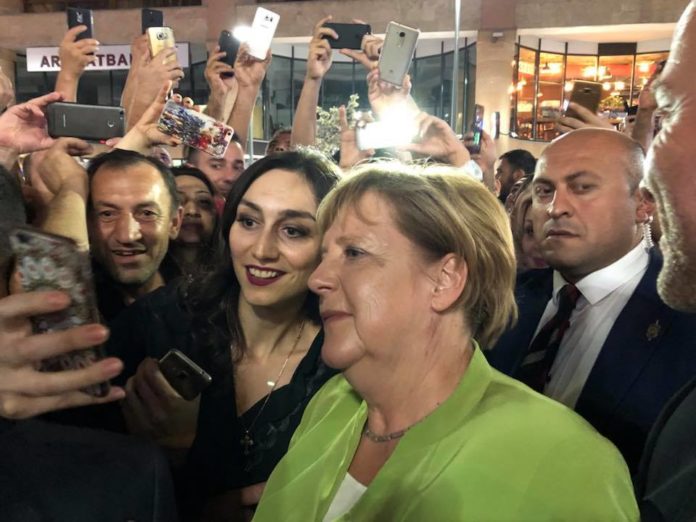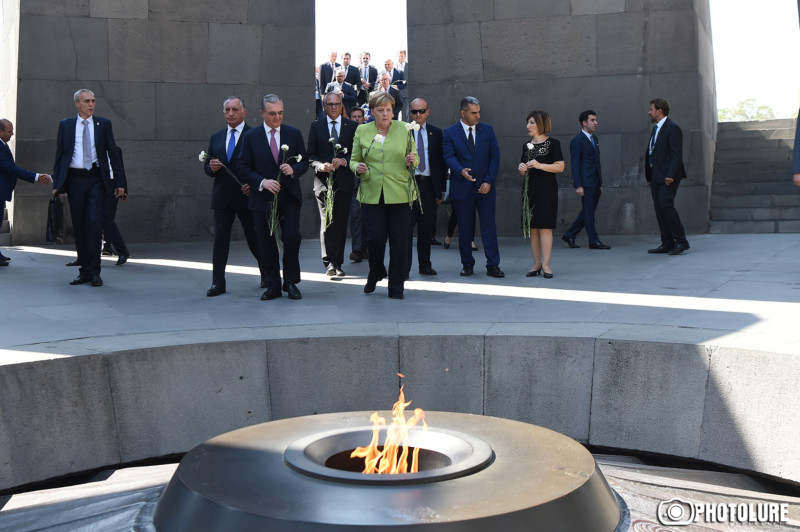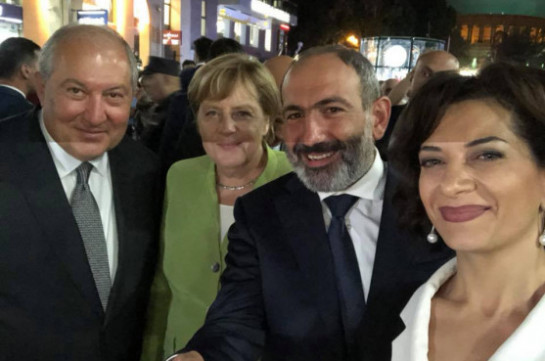YEREVAN (Combined Sources) — German Chancellor Angela Merkel described the Ottoman mass killings of Armenians as “heinous crimes against Armenians,” which “cannot and must not be forgotten.”
Merkel, who arrived in Armenia from neighboring Georgia on the second leg of her three-country visit to the South Caucasus on August 24, made the statement following a visit to a memorial dedicated to the Armenian Genocide.
After being greeted at Yerevan’s airport by Armenian Prime Minister Nikol Pashinyan,

Merkel traveled to the Tsitsernakaberd hilltop complex to lay a wreath at the monument dedicated to the victims.
Before the trip, Merkel’s office said, that during her stop in Armenia and subsequent visit to Azerbaijan on August 25, the chancellor would encourage efforts to reach “a peaceful and consensual solution” to the two countries’ long-running territorial conflict over Nagorno-Karabakh.
In Yerevan, Merkel told reporters that “it is important that the conflict is resolved peacefully” and that Germany “stands ready” to contribute to a solution.










